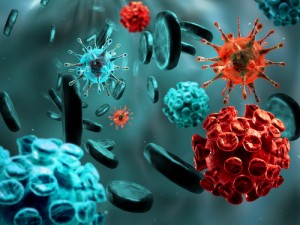Systemic Lupus Erythematous Patients Prone to Higher Cardiovascular Disease Rates
Written by |

 A research team from the University of Dundee recently discovered that a mutation in the protein ABIN1 mediates chronic inflammation and is associated with the development of cardiovascular disease. The results, which have important clinical applications for chronic inflammatory conditions such as systemic lupus erythematous (SLE) and rheumatoid arthritis (RA), were recently published in the journal Arthritis Research & Therapy.
A research team from the University of Dundee recently discovered that a mutation in the protein ABIN1 mediates chronic inflammation and is associated with the development of cardiovascular disease. The results, which have important clinical applications for chronic inflammatory conditions such as systemic lupus erythematous (SLE) and rheumatoid arthritis (RA), were recently published in the journal Arthritis Research & Therapy.
The link between cardiovascular disease (CVD) and patients suffering from chronic inflammation conditions such as systemic lupus erythematous (SLE) and rheumatoid arthritis (RA) remains poorly understood. Genome wide studies have found that patients suffering from these conditions present an over expression for numerous pro-inflammatory cytokines including tumor necrosis factor (TNF) and C-reactive protein (CRP).
Additionally, patients show significant leucocyte infiltration into the sub-endothelial space and have elevated levels of oxidative stress, which are key mediators of vascular dysfunction. There is an association between vascular function, high CRP levels, interleuin-6 (IL-6) in patients with RA and SLE, suggesting a link between systemic cytokine over-expression and endothelial dysfunction, an early event in the development of CVD.
In their study, entitled “An important role for A20-binding inhibitor of nuclear factor-kB-1 (ABIN1) in inflammation-mediated endothelial dysfunction: an in vivo study in ABIN1 (D485N) mice,” Faisel Khan from the Ninewells Hospital and Medical School at the University of Dundee, Scotland and colleagues, examined mice models with a mutation of the protein ABIN1 (ABIN1(D485N)), which develops a disease similar to SLE due to the hyper activation of IkB kinases (IKKs) and mitogen activated protein kinases (MAPK). Using these mice models, the research team aimed at determine the potential role of these signaling pathways in inflammation-mediated CVD development.
To examine endothelium-dependent vasodilatation, the researchers assessed two mice model groups with a combination of Laser Doppler imaging and iontophoresis of vasoactive chemicals, observing one group with the mutation in the protein ABIN1 (D485N) (n=29), and one control group with wild-type (n=26). Then the researchers gave the mice either a chow or a cholesterol diet.
After a period of four weeks, the researchers observed that the ABIN1 (D485N) mutated mice that received the chow diet had a reduced endothelium-dependent vasodilation, compared to the wild type mice that received the same diet. In comparison with the wild type group, the ABIN1 (D485N) mice that received the cholesterol diet had a poor endothelium-dependent response and cardiac hypertrophy.
These findings strongly suggest that the development of endothelial dysfunction associated with cardiovascular disease occurs due to a mutation in the ABIN1 (D485N), which is significantly associated with previous evidence that found similar results in systemic lupus erythematosus-like autoimmune disease (SLE). Based on these findings, the researchers conclude that ABIN1 dysfunction could be mechanistically involved in the early development of inflammation-induced CVD risk, thus potentially relating with conditions such as systemic lupus erythematosus.




